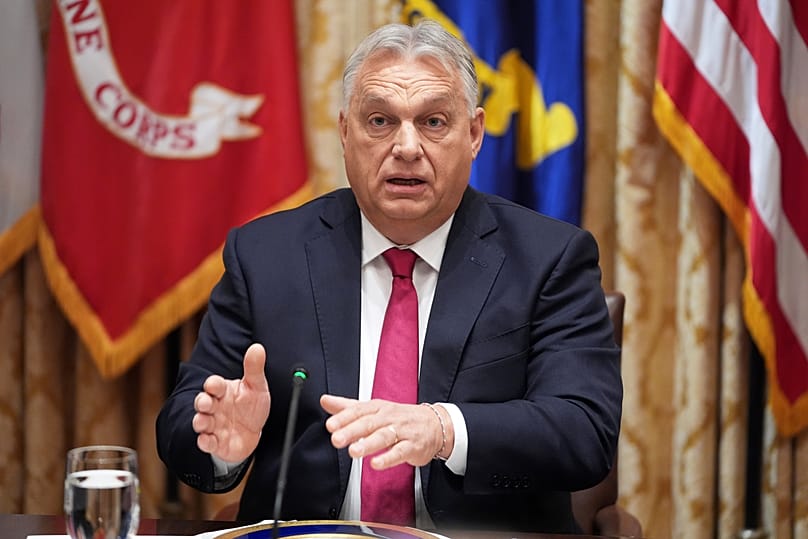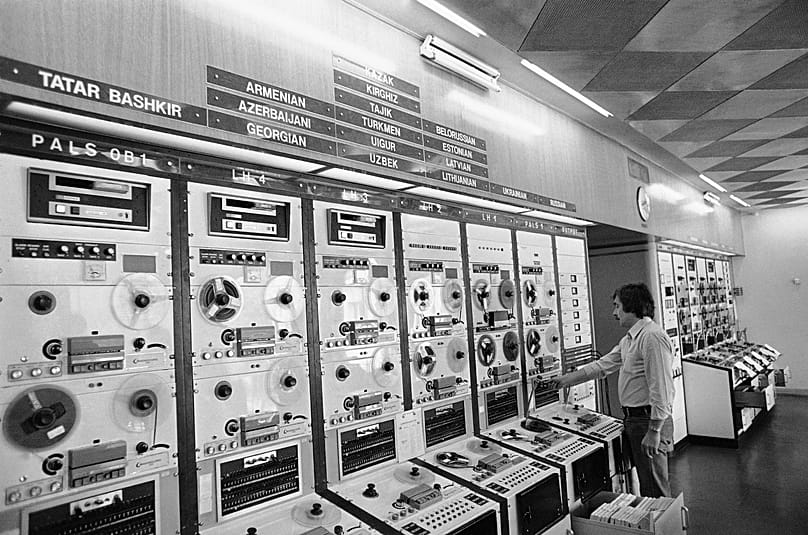The shuttering of Szabad Európa came as the Trump administration has made major cuts to international broadcasters like Radio Free Europe and Voice of America.
The Hungarian service of Radio Free Europe, Szabad Európa, ceased operations on Friday after the administration of US President Donald Trump announced it would no longer fund the pro-democracy news outlet.
 ADVERTISEMENT
ADVERTISEMENT
 ADVERTISEMENT
ADVERTISEMENT
In a statement on Thursday announcing the end of its operations, Szabad Európa wrote that it had "worked with dedication to provide the best of journalism and objective information to Hungarian readers."
"We thank you for the trust, interest and support we have received from our audience," the statement reads, adding that its articles will still be available online.
The Hungarian service was terminated in 1993 but reintroduced in 2020 after the United States Agency for Global Media (USAGM), an independent federal agency, and the US Congress approved its relaunching in response to Hungary's steep decline in media freedom under Prime Minister Viktor Orbán.
The shuttering of Szabad Európa came as the Trump administration has made major cuts to international broadcasters like Radio Free Europe/Radio Liberty and Voice of America, as well as domestic public broadcasters PBS and NPR.
Kari Lake, whom Trump named a senior adviser to the USAGM, informed Congress in a letter earlier this month that the agency would no longer fund Szabad Európa, writing that its operations in Hungary were "not aligned with US national interests" and that they "undermined" Trump's foreign policy.
In a post on X two days later, Lake wrote that "The Globalists are more than welcome to hate our ally Viktor Orbán."
"What they are not entitled to is the use of YOUR money to destabilise the Hungarian regime via taxpayer-funded programming on Szabad Európa. We’re putting a stop to that," she wrote.
Since returning to power in 2010, Orbán, a Trump ally, has overseen the construction of a massive pro-government media machine in Hungary while numerous independent newspapers and outlets have been shuttered or brought under the control of figures with close government ties.
According to press watchdog Reporters Without Borders, Orbán has used media buyouts by government-connected oligarchs to build "a true media empire subject to his party's orders."
The group estimates that such buyouts have given Orbán's party control of some 80% of Hungary’s media market resources.
In 2021, it put Orbán on its list of media "predators," the first European Union leader to earn the distinction.
Earlier this year, Orbán's party introduced legislation that would blacklist and fine critical media outlets that receive funding or grants from abroad.
Radio Free Europe/Radio Liberty, which is funded by the US government, was first established during the Cold War to provide news and information to people living behind the Iron Curtain.
Its programmes are aired in 27 languages in 23 countries across Eastern Europe, Central Asia and the Middle East.












